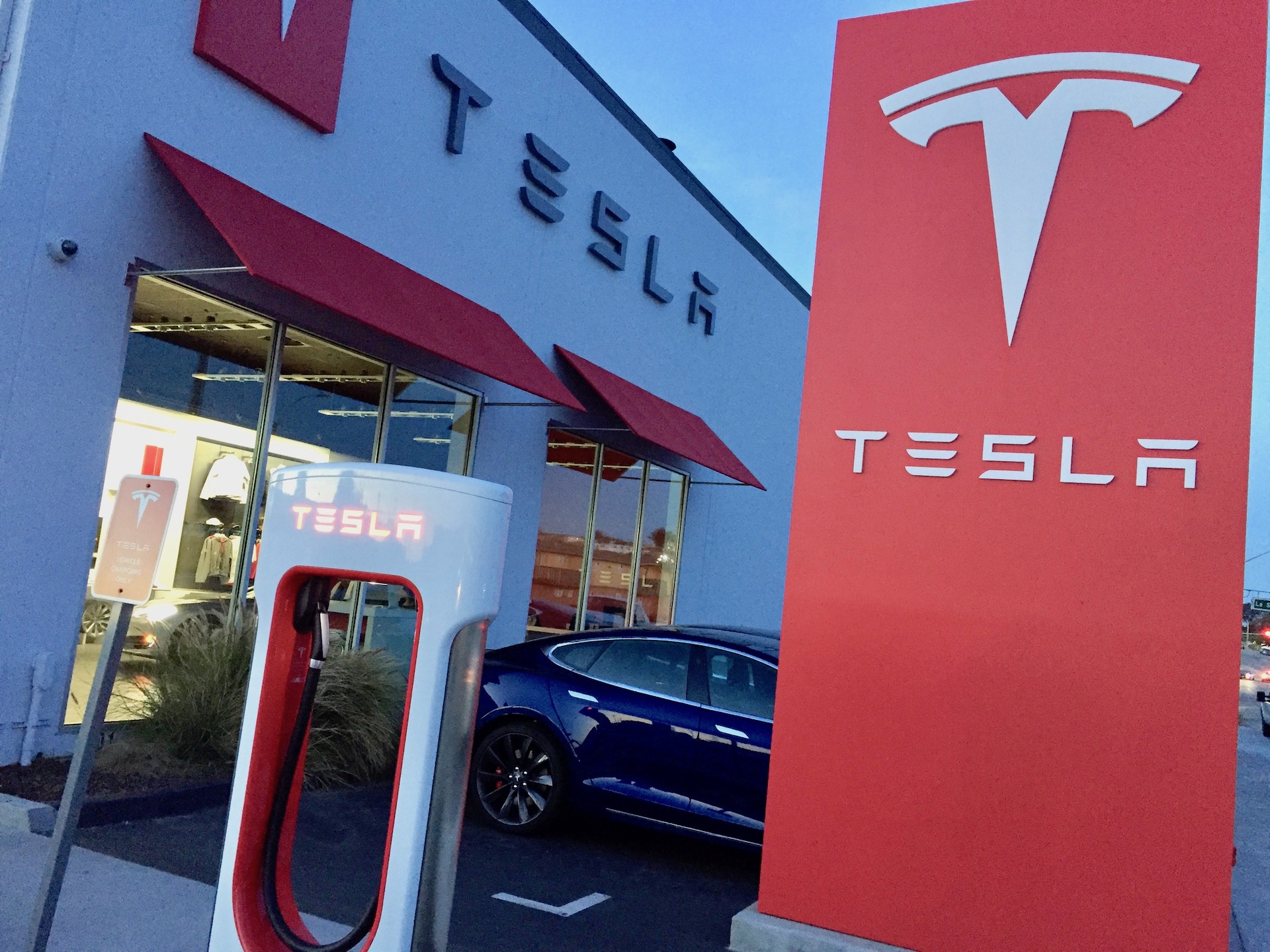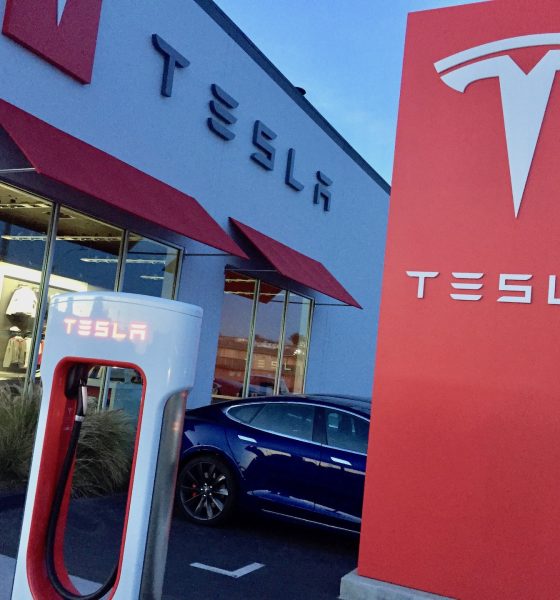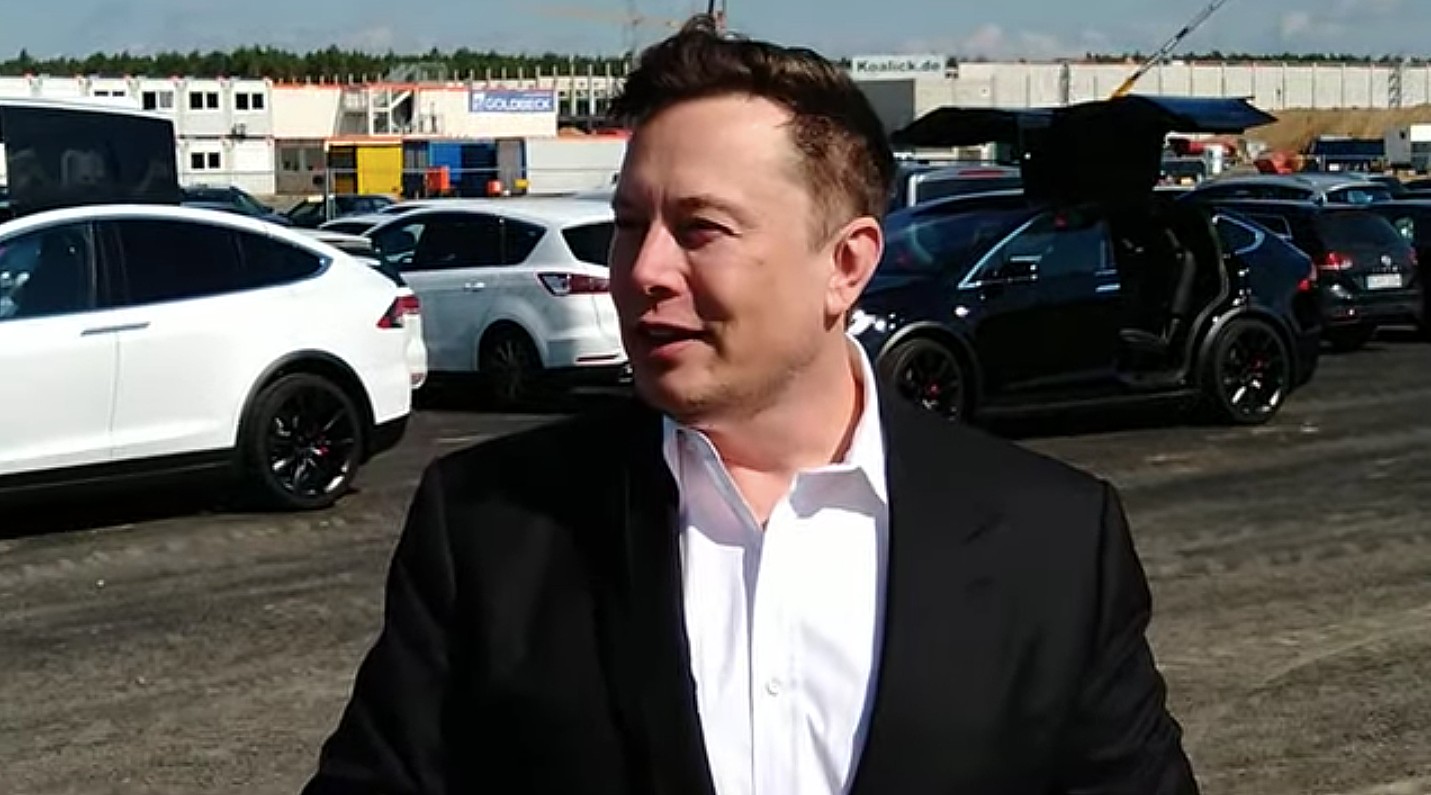

Investor's Corner
Tesla sued by JPMorgan over Musk’s 2018 ‘funding secured’ Tweet
Tesla is being sued by JP Morgan Chase in a massive $162 million lawsuit over stock warrants linked to CEO Elon Musk’s infamous “funding secured” Tweet from 2018 when Musk hinted toward taking the company private at $420.
Court filings made public on Monday and reported by Barron’s showed JPMorgan Chase is alleging Tesla of branching a contract in regards to the repricing of warrants. Following Musk’s Tweet in 2018 that hinted he was thinking of taking Tesla private at $420 per share, the stock responded with volatility, which caused losses. JPMorgan Chase’s lawsuit outlines a potential payout of $162.2 million, plus interest, fees, and expenses.
JPMorgan filed the complaint in the Southern District of New York, and details a contract with Tesla where the automaker was legally obliged to deliver shares or cash if the stock price passed certain levels by a certain time. This is known as a “strike price.” Barron’s said this was a stock warrant transaction, which is similar to stock options contracts available to retail investors.
The lawsuit’s most critical point is that Tesla did not deliver the cash or shares. JPMorgan was forced to reprice the stock warrants after Musk Tweeted, “Am considering taking Tesla private at $420. Funding secured. Shareholders could either to sell at 420 or hold shares & go private.”
Shareholders could either to sell at 420 or hold shares & go private
— Elon Musk (@elonmusk) August 7, 2018
Musk’s Tweet resulted in a settlement with the SEC, which required the CEO to step down as Tesla’s Chairman, pay a $20 million penalty, appoint two new independent directors to the Tesla board, and “establish a new committee of independent directors and put in place additional controls and procedures to oversee Musk’s communications.”
The Tweets spiked Tesla’s stock price, which, in turn, caused JPMorgan to readjust the value of the warrants. After Musk and Tesla confirmed a few weeks later that the stock would not be taken private, JPMorgan readjusted the value of the warrants once again. Tesla sold warrants to JPMorgan with provisions that protected both entities from potential volatility that could come from significant corporate transactions, according to JPMorgan. The provisions gave the banking firm the right to adjust and readjust the warrants in cases of significant announcements that could cause stock movement. JPMorgan said the provisions were put in to protect both parties from “exactly the type” of announcement that Musk Tweeted.
Tesla, however, did not take kindly to JPMorgan repricing the warrants and stated that the bank’s move was “unreasonably swift and represented an opportunistic attempt to take advantage of changes in volatility in Tesla’s stock,” according to a letter that was included in the filing.
Credit: Tobias Lindh/Youtube
JPMorgan did not readjust the strike price following the second modification, the filing said, as the warrants expired in June and July 2021. Tesla’s stock rose nearly 900% from the 2018 Tweet to the end of July 2021, most of the growth taking place during 2020, when TSLA shares rose over 700%. The prices were above the original and readjusted strike prices.
The lawsuit said that Tesla and the bank have agreed that the automaker should settle the undisputed number of shares earlier in 2021. However, Tesla is still uneasy with the fact JPMorgan readjusted the strike prices, but JPMorgan said that failure to settle the adjusted strike price could conclude with a default. JPMorgan’s suit said Tesla failed to deliver 228,775 shares, meaning the bank is stuck with an open hedge position that equals the shortfall. “Even though JPMorgan’s adjustments were appropriate and contractually required, Tesla has refused to settle at the contractual strike price and pay in full what it owes to JPMorgan,” the firm said in its complaint. “As a result, more than $162 million is immediately due and payable to JPMorgan by Tesla.”
The case, JPMorgan Chase Bank v. Tesla Inc., 21-cv-09441, is available to read here.
I’d love to hear from you! If you have any comments, concerns, or questions, please email me at joey@teslarati.com. You can also reach me on Twitter @KlenderJoey, or if you have news tips, you can email us at tips@teslarati.com.

Elon Musk
Tesla stock gets latest synopsis from Jim Cramer: ‘It’s actually a robotics company’
“Turns out it’s actually a robotics and Cybercab company, and I want to buy, buy, buy. Yes, Tesla’s the paper that turned into scissors in one session,” Cramer said.

Tesla stock (NASDAQ: TSLA) got its latest synopsis from Wall Street analyst Jim Cramer, who finally realized something that many fans of the company have known all along: it’s not a car company. Instead, it’s a robotics company.
In a recent note that was released after Tesla reported Earnings in late January, Cramer seemed to recognize that the underwhelming financials and overall performance of the automotive division were not representative of the current state of affairs.
Instead, we’re seeing a company transition itself away from its early identity, essentially evolving like a caterpillar into a butterfly.
The narrative of the Earnings Call was simple: We’re not a car company, at least not from a birds-eye view. We’re an AI and Robotics company, and we are transitioning to this quicker than most people realize.
Tesla stock gets another analysis from Jim Cramer, and investors will like it
Tesla’s Q4 Earnings Call featured plenty of analysis from CEO Elon Musk and others, and some of the more minor details of the call were even indicative of a company that is moving toward AI instead of its cars. For example, the Model S and Model X will be no more after Q2, as Musk said that they serve relatively no purpose for the future.
Instead, Tesla is shifting its focus to the vehicles catered for autonomy and its Robotaxi and self-driving efforts.
Cramer recognizes this:
“…we got results from Tesla, which actually beat numbers, but nobody cares about the numbers here, as electric vehicles are the past. And according to CEO Elon Musk, the future of this company comes down to Cybercabs and humanoid robots. Stock fell more than 3% the next day. That may be because their capital expenditures budget was higher than expected, or maybe people wanted more details from the new businesses. At this point, I think Musk acolytes might be more excited about SpaceX, which is planning to come public later this year.”
He continued, highlighting the company’s true transition away from vehicles to its Cybercab, Optimus, and AI ambitions:
“I know it’s hard to believe how quickly this market can change its attitude. Last night, I heard a disastrous car company speak. Turns out it’s actually a robotics and Cybercab company, and I want to buy, buy, buy. Yes, Tesla’s the paper that turned into scissors in one session. I didn’t like it as a car company. Boy, I love it as a Cybercab and humanoid robot juggernaut. Call me a buyer and give me five robots while I’m at it.”
Cramer’s narrative seems to fit that of the most bullish Tesla investors. Anyone who is labeled a “permabull” has been echoing a similar sentiment over the past several years: Tesla is not a car company any longer.
Instead, the true focus is on the future and the potential that AI and Robotics bring to the company. It is truly difficult to put Tesla shares in the same group as companies like Ford, General Motors, and others.
Tesla shares are down less than half a percent at the time of publishing, trading at $423.69.
Elon Musk
Tesla to a $100T market cap? Elon Musk’s response may shock you

There are a lot of Tesla bulls out there who have astronomical expectations for the company, especially as its arm of reach has gone well past automotive and energy and entered artificial intelligence and robotics.
However, some of the most bullish Tesla investors believe the company could become worth $100 trillion, and CEO Elon Musk does not believe that number is completely out of the question, even if it sounds almost ridiculous.
To put that number into perspective, the top ten most valuable companies in the world — NVIDIA, Apple, Alphabet, Microsoft, Amazon, TSMC, Meta, Saudi Aramco, Broadcom, and Tesla — are worth roughly $26 trillion.
Will Tesla join the fold? Predicting a triple merger with SpaceX and xAI
Cathie Wood of ARK Invest believes the number is reasonable considering Tesla’s long-reaching industry ambitions:
“…in the world of AI, what do you have to have to win? You have to have proprietary data, and think about all the proprietary data he has, different kinds of proprietary data. Tesla, the language of the road; Neuralink, multiomics data; nobody else has that data. X, nobody else has that data either. I could see $100 trillion. I think it’s going to happen because of convergence. I think Tesla is the leading candidate [for $100 trillion] for the reason I just said.”
Musk said late last year that all of his companies seem to be “heading toward convergence,” and it’s started to come to fruition. Tesla invested in xAI, as revealed in its Q4 Earnings Shareholder Deck, and SpaceX recently acquired xAI, marking the first step in the potential for a massive umbrella of companies under Musk’s watch.
SpaceX officially acquires xAI, merging rockets with AI expertise
Now that it is happening, it seems Musk is even more enthusiastic about a massive valuation that would swell to nearly four-times the value of the top ten most valuable companies in the world currently, as he said on X, the idea of a $100 trillion valuation is “not impossible.”
It’s not impossible
— Elon Musk (@elonmusk) February 6, 2026
Tesla is not just a car company. With its many projects, including the launch of Robotaxi, the progress of the Optimus robot, and its AI ambitions, it has the potential to continue gaining value at an accelerating rate.
Musk’s comments show his confidence in Tesla’s numerous projects, especially as some begin to mature and some head toward their initial stages.
Elon Musk
Tesla director pay lawsuit sees lawyer fees slashed by $100 million
The ruling leaves the case’s underlying settlement intact while significantly reducing what the plaintiffs’ attorneys will receive.

The Delaware Supreme Court has cut more than $100 million from a legal fee award tied to a shareholder lawsuit challenging compensation paid to Tesla directors between 2017 and 2020.
The ruling leaves the case’s underlying settlement intact while significantly reducing what the plaintiffs’ attorneys will receive.
Delaware Supreme Court trims legal fees
As noted in a Bloomberg Law report, the case targeted pay granted to Tesla directors, including CEO Elon Musk, Oracle founder Larry Ellison, Kimbal Musk, and Rupert Murdoch. The Delaware Chancery Court had awarded $176 million to the plaintiffs. Tesla’s board must also return stock options and forego years worth of pay.
As per Chief Justice Collins J. Seitz Jr. in an opinion for the Delaware Supreme Court’s full five-member panel, however, the decision of the Delaware Chancery Court to award $176 million to a pension fund’s law firm “erred by including in its financial benefit analysis the intrinsic value” of options being returned by Tesla’s board.
The justices then reduced the fee award from $176 million to $70.9 million. “As we measure it, $71 million reflects a reasonable fee for counsel’s efforts and does not result in a windfall,” Chief Justice Seitz wrote.
Other settlement terms still intact
The Supreme Court upheld the settlement itself, which requires Tesla’s board to return stock and options valued at up to $735 million and to forgo three years of additional compensation worth about $184 million.
Tesla argued during oral arguments that a fee award closer to $70 million would be appropriate. Interestingly enough, back in October, Justice Karen L. Valihura noted that the $176 award was $60 million more than the Delaware judiciary’s budget from the previous year. This was quite interesting as the case was “settled midstream.”
The lawsuit was brought by a pension fund on behalf of Tesla shareholders and focused exclusively on director pay during the 2017–2020 period. The case is separate from other high-profile compensation disputes involving Elon Musk.








